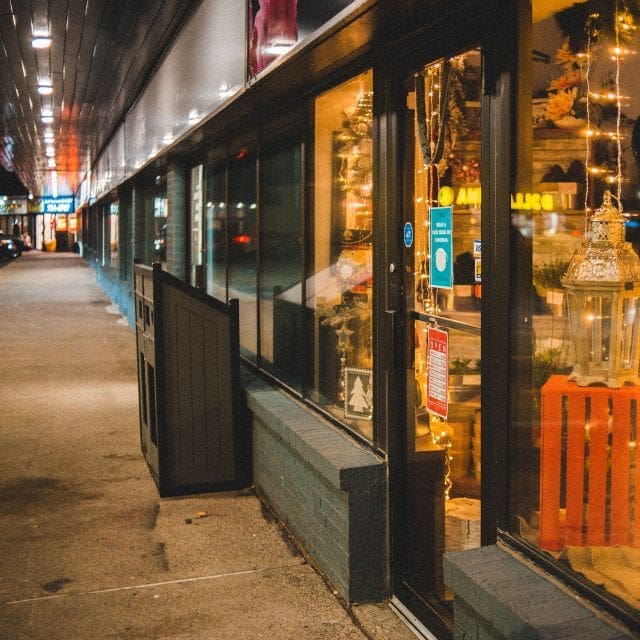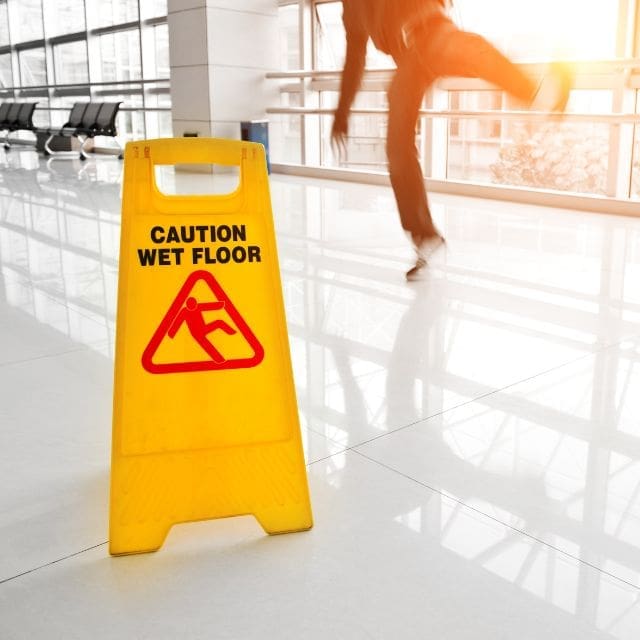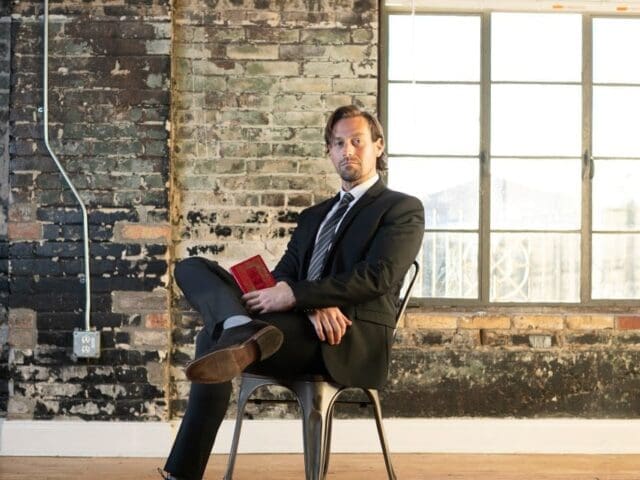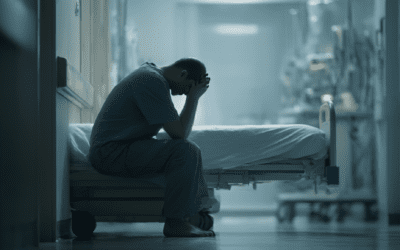Have you ever wondered how a simple misstep could change your life? Slip and fall commercial properties are more common than you’d think and can have serious consequences. You’re likely familiar with wet floor signs and uneven surface warnings, but there’s much more to premises liability than meets the eye. You have rights as a customer or visitor, and property owners have responsibilities. Understanding these dynamics can be essential if you are in an unfortunate situation. What’s at stake? Your health, finances, and legal standing are just the beginning. Let’s explore what you need to know to protect yourself.
Understanding Premises Liability

Premises liability is at the heart of slip-and-fall accidents on commercial properties. As a business owner, you’re responsible for maintaining a safe environment for your customers and visitors. This means you must proactively identify hazardous conditions that could lead to accidents.
You must implement routine maintenance procedures to protect your customers and your business. These should include regular inspections of your property, prompt cleanup of spills, and immediate repairs of any potential hazards.
You’ll also want to establish employee training protocols to ensure your staff can identify and address safety issues.
Don’t forget about guest notification policies. When hazards aren’t immediately addressed, you must warn visitors of potential dangers through clear signage or barriers. Maintaining detailed records of all maintenance activities, inspections, and incidents is essential. These recordkeeping requirements can be paramount if you ever face a liability claim.
Common Causes of Slip-and-Fall Accidents
Understanding the common causes of slip-and-fall accidents is fundamental to preventing them on your commercial property. Wet or slippery floors are a leading culprit, often resulting from spills, leaks, or hazardous weather conditions.
Improper floor maintenance can leave surfaces uneven or damaged, creating tripping hazards like cracks, holes, or loose tiles.
Don’t overlook the importance of adequate lighting. Poorly lit areas can obscure potential dangers, increasing the risk of accidents.
Obstructed walkways are another common cause; clutter or misplaced objects in high-traffic areas can lead to serious falls.
Inadequate safety measures, such as a lack of proper signage or warnings about known hazards, can contribute to slip-and-fall incidents. Implementing clear policies and procedures for promptly identifying and addressing potential risks is pivotal.
Property Owner’s Legal Responsibilities
Duty of care forms the cornerstone of a property owner’s legal responsibilities in slip-and-fall cases. As a business owner, you must maintain a reasonably safe environment for your customers.
This means you must actively work to identify hazards, conduct regular inspections, and promptly address any potential dangers on your premises.
To fulfill your legal responsibilities, you should focus on:
- Developing thorough safety protocols
- Maintaining detailed records of inspections and repairs
- Training employees on hazard identification and reporting
- Implementing a system for quick response to potential dangers
You’re expected to take proactive steps to prevent accidents. This includes regularly checking for wet floors, uneven surfaces, or obstructions that could cause someone to slip and fall.
If you fail to address known hazards or neglect to conduct routine inspections, you may be held liable for any resulting injuries.
Proving Negligence in Commercial Settings

You must establish several essential elements to prove negligence in a commercial slip-and-fall case. First, you must demonstrate hazard awareness by showing that the property owner knew or should have known about the dangerous condition. This might involve reviewing maintenance records, security footage, or witness statements.
Next, establish a causal connection between the hazard and your injuries. You must clearly show how the unsafe condition directly led to your accident. Evidence collection strategies are vital here; gather photos of the scene, medical records, and expert testimony to support your claim.
Analyzing the duty of care is another pivotal aspect. You must prove that the property owner failed to meet their legal obligation to maintain a safe environment. This involves examining their policies, procedures, and actions (or lack thereof) in addressing potential hazards.
Lastly, be prepared for the defense to assess comparative negligence. They may argue that you were partially responsible for the accident. To counter this, document your actions leading up to the incident and explain why you couldn’t have reasonably avoided the hazard.
Immediate Steps After an Accident
In the aftermath of a slip and fall accident, your actions can greatly impact the strength of your potential claim. Your top priority should be seeking immediate medical attention. This safeguards your well-being and provides essential documentation of your injuries.
Next, report the incident to the store manager or property owner and file an incident report. Remember to collect evidence: take photos of the accident scene, preserve your clothing and shoes, and gather contact information from any witnesses.
- Secure video footage, if available
- Notify your insurance company promptly
- Retain all receipts for medical expenses
- Consult legal counsel to understand your rights
Remember to document everything related to the accident and your injuries. This includes keeping a record of conversations with the property owner or their representatives. Notifying your insurance company about the incident is important, even if you’re unsure about pursuing a claim.
As you navigate this process, consider consulting with an experienced attorney who can direct you through the legal aspects and help protect your rights. By taking these immediate steps, you’ll be better prepared to handle any potential legal proceedings arising from your slip and fall accident.
Potential Compensation for Injuries
Those who’ve suffered a slip and fall accident on commercial property may be entitled to various forms of compensation. Your potential award can cover medical expenses, lost wages, pain and suffering, and permanent disabilities or disfigurement. The calculation of medical expenses includes immediate treatment costs and long-term rehabilitation costs, which can be substantial depending on the severity of your injuries.
The amount you receive can vary enormously based on several factors. These include the extent of your injuries, the duration of lost income, and the psychological impact of the accident. Jury award variation is common in these cases, as each situation is unique.
It’s important to note that pre-existing condition effects may influence your compensation, though they don’t necessarily disqualify you from receiving damages.
To maximize your potential compensation, you must prove the property owner’s negligence and demonstrate how their failure to maintain a safe environment directly caused your injuries. An experienced premises liability attorney can help you navigate this complex process, gathering evidence and building a strong case to fight for the full compensation you deserve.
Importance of Legal Representation

While understanding potential compensation is important, securing it requires expert guidance. An experienced premises liability attorney can protect your rights and navigate the complex legal process of pursuing compensation for slip and fall injuries. Their legal expertise is pivotal in building a strong case and maximizing your potential recovery.
Attorneys possess investigation methods to gather critical evidence. They can identify all responsible parties and establish liability. Lawyers have negotiation skills to deal with insurance companies. They comprehend insurance company tactics and can counter them effectively.
Premises liability cases often involve disputes over duty of care, breach of duty, causation, and damages. Without an attorney, you may struggle to negotiate effectively with insurance companies and property owners, who’ve teams of lawyers working to minimize or deny liability. This is particularly important when your accident results in serious, long-term injuries.
A skilled lawyer can help you obtain full compensation for your losses, ensuring that all aspects of your claim are thoroughly addressed through their evidence collection and legal expertise.
The Impact of Slip and Fall Accidents: Your Rights and Responsibilities
You’re now equipped with crucial knowledge about slip and fall commercial properties. These incidents can end your life instantly, affecting your health, finances, and overall well-being. Understanding premises liability, recognizing common hazards, and knowing property owners’ legal duties are vital for protecting your rights.
If you’re injured in a slip-and-fall accident, remember that seeking legal help is your right. You deserve fair compensation for your injuries and losses. This information highlights the importance of robust safety measures and property maintenance for business owners. You can minimize accident risks and potential liability by implementing thorough procedures and staff training.
Whether you’re a visitor or property owner, staying informed and proactive is key. Report hazards, document incidents meticulously, and always prioritize safety. With this knowledge, you’re better prepared to handle premises liability issues and safeguard yourself or your business. If you’ve been injured in a slip and fall accident, contact Calandro Law today for expert legal guidance and to ensure your rights are protected.



